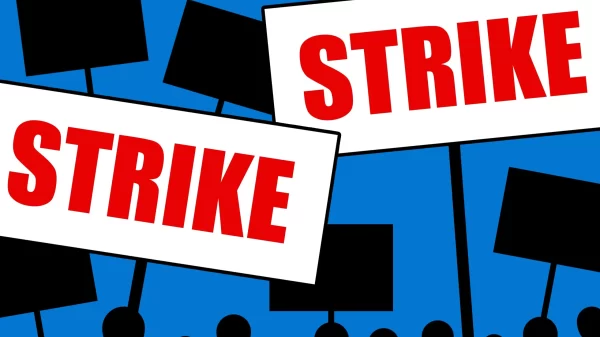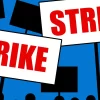|
Getting your Trinity Audio player ready...
|
On May 8, the state House passed SB231. The legislation was introduced by Sen. Arthur Orr, R-Decatur, and, if signed by Gov. Kay Ivey, will bar companies who choose to voluntarily recognize a union from receiving grants, loans, or tax credits from the state government and local governments.
Additionally, any grants, loans, or tax credits received after January 1, 2025, would have to be repaid in full.
The bill’s advocate in the House, Rep. Scott Stadthagen, R-Hartselle, said that the bill would “give the employees the opportunity to have a private ballot.”
He contrasted this with card checks, which he described as when “your name as an employee is on the card, and [unions] can physically know how you voted on that issue.”
“In other states, there have been stories about certain entities going to [a worker’s] house with their families, getting their votes that way,” Stadthagen explained.
Matthew Bruenig, a labor lawyer and the operator of the labor law publication NLRB Edge, explained in an email to APR that “the signing of authorization cards is not private but it is already illegal to coerce someone into signing such a card.”
Bruenig also emphasized that both pro-union and anti-union employees can try to sway their coworkers to their side.
Plus, in order to request an official secret election run by the federal National Labor Relations Board, workers must submit a petition with support from at least 30 percent of workers. This is typically done by submitting signed authorization cards, also known as a card check.
While the bill passed the House handily with a vote of 72 in favor, 29 against, several Democratic representatives registered their discontent before it did so.
Rep. Berry Forte, D-Barbour, talked fondly about his time as a member of the United Steelworkers and brought up the upcoming union election at the Mercedes-Benz plant in Tuscaloosa. He asked if the bill was Gov. Kay Ivey’s bill, referring to her public statements criticizing the United Auto Workers.
Rep. Napoleon Bracy, D-Prichard, called the bill “leadership of the state friendly,” rather than business or employee friendly. He said the bill is “telling the employer they cannot do [something] anymore and if you do it, then we’re going to penalize you and take millions of dollars back.”
In response to the critiques, Stadthagen asked, “What is the harm of letting an employee have the right to vote in private if they wanted to do something or not?”
But Bren Riley, the president of the Alabama chapter of the American Federation of Labor and Congress of Industrial Organizations, or AFL-CIO, is a harsh critic of the bill.
Riley called it “an ALEC bill,” referring to the American Legislative Exchange Council.
“It was stuck up Tennessee’s ass last year. It was stuck up Georgia’s ass earlier this year,” he said.
ALEC is a conservative organization that suggests bills for state legislatures to pass. Legislation very similar to SB231 passed in Tennessee in 2023 was adopted as model legislation by ALEC and SB231’s primary sponsor, Orr, was recognized as an ALEC Policy Champion in March.
Riley also compared Stadthagen’s description of the pressure on employees to sign union cards to the pressure that employers exert on employees during union elections.
He said: “Well once [businesses] force you to a vote, that’s where they really start pressuring the employees and scaring the hell out of them.”
Despite Riley’s opposition and the opposition of the North Alabama Area Labor Council, it is unclear if the bill will negatively impact unions in Alabama. A union member for 46 years, Riley says he has “never personally seen a voluntary recognition.”
However, a 2023 report by Aurelia Glass published by the Center for American Progress found that voluntary recognition of labor unions has become more common in recent years, especially among mission-driven organizations and news and media organizations.
Glass’ report stated that businesses may choose voluntary recognition in order to “opt out of the scorched-earth campaign against a union election” and maintain better relationships with employees.
“We want to partner with these damn employers,” Riley said. “We want them to make all the god dang money they can make.”






















































